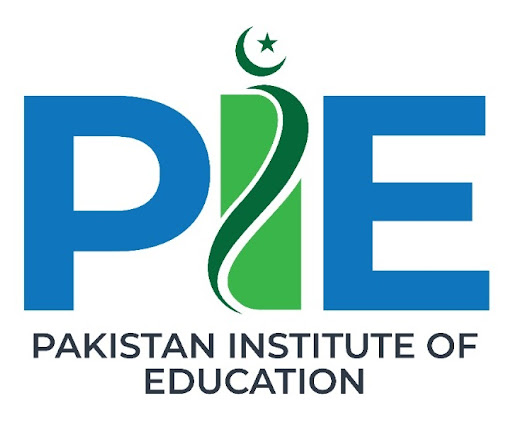ISLAMABAD, Mar 01 (APP):The recent National Achievement Test 2023 report released by the Pakistan Institute of Education has brought to light significant challenges facing Pakistan&#
8217;s education system, particularly in mathematics and science education.
Despite widespread satisfaction among parents and students with the learning environment, the NAT results underscore critical areas for improvement to enhance student learning outcomes.
On Friday, a prestigious ceremony was held here to announce the NAT results with Waseem Ajmal Chaudhry, Federal Secretary, Ministry of Education and
Professional Training as the chief guest.
DG PIE Dr Shahid Soroya, Vice Chancellor Allama Iqbal Open University
Professor Dr. Nasir Mehmood, Senior Education Advisor from FCDO Saima Anwer, Assistant
Professor Dr Jessica Albrent from LUMS, Maliha Hyder and Toby Linden from the World Bank, Georgina Glasby from Cambridge International Assessment, and Special Secretary Mohyuddin Ahmad Wani spoke at the report launch to share their recommendations and analysis.
According to DG PIE, the NA
T assessment, which sampled 1283 public sector schools and over 23,000 students nationwide, revealed alarming trends in math proficiency levels among students at Grade 4 and Grade 8. Only 8% of Grade 8 students and 17% of Grade 4 students scored 75% or more in math assessments, highlighting a significant gap in math proficiency across primary and middle grades.
Waseem Ajmal Chaudhry, Federal Secretary, Ministry of Education and
Professional Training in his opening remarks stated that “the National Achievement Test 2023 results provide us with confirmed d
ata and valuable recommendations. The report reveals a shortage teachers, highlighting the need to increase teacher capacity and adopt modern training methods. It is also concerning that the majority of eighth-grade teachers have not received training in math and science in the past two years. To improve the quality of education, we need to encourage interactive learning methods in classrooms and find ways to increase parental involvement in their children&#
8217;s education.”
DG PIE Dr Shahid Soroya, Director General, Pakistan Institute of Education said “the Pakistan Institute of Education, established in 2022, aims to strengthen collaboration with federal and provincial governments, collect and analyze educational data, and support data-driven policy-making. The institute&#
8217;s research focuses on addressing perennial challenges in the education sector, promoting a culture of research among education departments, and providing research partnerships. We must address the identified challenges through concerted efforts, including focusing on teacher training programs, addressing teacher shortages, and improving mathematics and science education.”
A deeper analysis of the NAT results unveils the root causes contributing to low math proficiency levels. Teachers, who play a pivotal role in shaping students’ academic success, scored the lowest in math assessments, achieving 74% and 71% proficiency levels in Grade 4 and Grade 8, respectively. This is particularly concerning as teacher performance in Grade 8 subjects was notably lacking, indicating a pressing need for enhanced teacher training and support in mathematics education.
Furthermore, the NAT findings revealed that a vast majority of Grade 8 teachers had not received any training related to mathematics and science in the last two years. This lack of training directly hampers teachers’ ability to effect
ively teach these subjects and contribute to students’ overall academic success, further exacerbating the challenges in math and science education.
Georgina Glasby, Assessment Manager, Cambridge International Assessment said “the National Achievement Test recommendations highlight the importance of understanding teachers’ needs and addressing skill gaps. This can be achieved through teacher competency assessments and providing training on new curriculum aspects.
Additionally, improving school heads’ capacity to interpret learning assessments and make informed decisions is crucial. We must also find ways to increase parental involvement in their children&#
8217;s education.”
Despite high levels of satisfaction among parents and students with the school&#
8217;s overall performance and learning environment, there exists a significant disparity between perception and actual academic achievement.
More than 75% of parents with children enrolled in Grade 4 and Grade 8 expressed satisfaction with the school&#
8217;s performance and the student&#
8217;s environment. Approximately 90% of students enrolled in these grades also reported liking the school&#
8217;s environment. However, these positive perceptions sharply contrast with the low academic achievement levels revealed by the NA
T assessment.
At the Grade 4 level, students could only achieve a 49% score in mathematics, 56% in English, and 68% in Urdu/Sindhi. Similarly, student performance at the Grade 8 level remained below 51% in mathematics and science. This disconnect underscores the urgent need for targeted interventions to bridge this gap and improve student outcomes.
A key systemic barrier identified by the NA
T assessment is the shortage of teachers, particularly at Grade 4 and Grade 8 levels. More than 50% of head teachers surveyed cited the shortage of teachers as a significant contributor to school challenges.
This sentiment was echoed in the parent perception survey, with 41% of parents with children enrolled in Grade 4 believing that the shortage of teachers negat
ively impacts the school&#
8217;s overall performance.
Addressing the challenges highlighted by the NA
T assessment will require concerted efforts from policymakers, educators, and stakeholders to invest in teacher training programs, alleviate teacher shortages, and implement targeted interventions aimed at improving math and science education.
By addressing these systemic issues, Pakistan can work towards providing all students with access to quality education and the support needed to succeed academically.
At the end of the ceremony, Mohyuddin Ahmad Wani, Special Secretary of the Ministry of Federal Education and
Professional Training said that issues have come to the fore in the National Achievement Test, we have the d
ata and now action is needed.
To ensure quality education, we have to focus on basic education. We should determine a model school in any part of the country, then the measures and policies taken in it should be implemented in all educational institutions.
